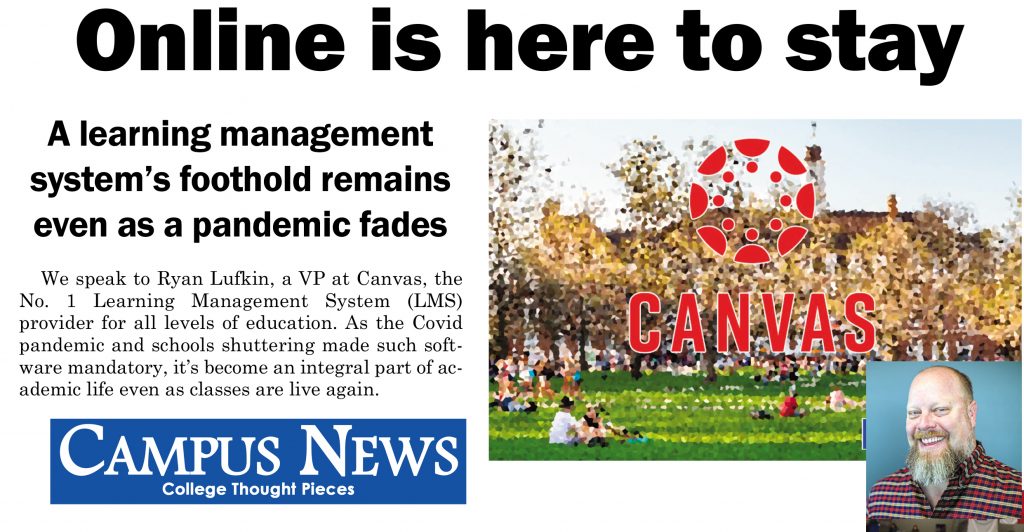By Darren Johnson
Campus News
While journalism and the First Amendment have protected our democracy over the centuries, the actual practice of journalism itself wasn't all that democratic.
Up until recently, each town had at least a daily paper, and maybe some weeklies, some radio stations, some TV. And that was it. These were mostly private organizations, and journalists could be vetted by them and their long traditions.
And in America, democracy is intertwined with capitalism -- and thus the First Amendment is further protected by this model, as market forces would weed out bad journalists -- people wouldn't buy rag papers, and advertisers (capitalism at its finest) wanted to be in venues with integrity. Thus, even though the media was privately owned -- mostly by rich guys -- the democratic/capitalistic system prevented media outlets from becoming too yellow.
Sure, occasionally a regular citizen could publish some pamphlets or the like, but that was hardly democratic.
However, nowadays, the media is wildly democratic. Someone can start an online-only newspaper at a kitchen table and gather clicks -- and thus Internet ad dollars. These startups take clicks away from traditional publishers who, in turn, have to dumb-down their content to survive.
Thus, we get a lot of overblown stories now -- even from once-reputable outlets. One of the most popular categories, as I've dubbed it, is "Internet outrage." These are stories that, on the surface, appear to be news, but in reality, the news element there isn't really all that strong. At least not proportionate to the clicks they get. They spark colorful discussion, but the stories may not have a tangible result -- for example, an arrest or at least potential arrest.
Here are two stories getting similar play: Using Google News, one can see that the search terms "Kevin Spacey" plus "assault" get about the same number of returns as "Louis CK" plus "sexual misconduct," approximately seven million for each.
While both stories are newsworthy, they are not equally newsworthy -- except according to the Internet, where CK is seen as a wild and crazy guy and his sad-sack photos are much more shareable.
But time warp these stories to the print-first 1990s and Spacey would be a 1000-word cover story and CK would be a blurb on Page 6. Spacey's story has more news elements -- there are more grounds to arrest him, and, if arrested, he could see serious time. He was axed from the wildly popular "House of Cards" and his role in next month's release of the much promoted "All the Money in the World" has been quickly recast, his parts erased. CK mostly self-produces his own odd shorts and his comedy is rather blue anyway. As gross as he is -- and what he did was heinous -- he'll be back.
The problem is, if we let "likes" and "shares" dictate what's news, these two stories are co-equals. We are supposed to be maximum outraged over all of these types of stories.
And thus the problem. Then we get election stories that are wildly exaggerated, if not completely false. We forget about worse culprits, because stories that are simply more head-scratching pop up in our feeds, and then the bad guys get away with it. Their stories fall off of page one of the Google rankings because newer, equally salacious stories appear -- but they aren't vetted. They aren't always as important. As deserving of page one.
Also, we get stories about the stories -- "Here's what 'Saturday Night Live' said about Louis CK!" How is that a story? No wonder why there are seven million results for each of these stories; they are copies of copies of copies.
We have to admit that Google and Facebook play a major role in what news gets prioritized. They are as responsible for our current democracy as the old boys network was in yesteryear. However, in yesteryear, the business model was different -- higher integrity led to higher profits. Now it's shareability that matters more.
That said, dear Facebook and Google, you can stop being paranoid. You're entrenched. You've won. You are our news feeds now. The old printing presses are wheezing and sputtering. No one is going to displace you any time soon. Now you can stop being so darned democratic. Create a new system of journalistic checks and balances so that important news is prioritized better.
Or else, our system will continue its freefall.
 Darren Johnson owns Campus News, a newspaper that hits 37 colleges in the Northeast. He has also taught communications for several colleges.
Darren Johnson owns Campus News, a newspaper that hits 37 colleges in the Northeast. He has also taught communications for several colleges.








Facebook Comments